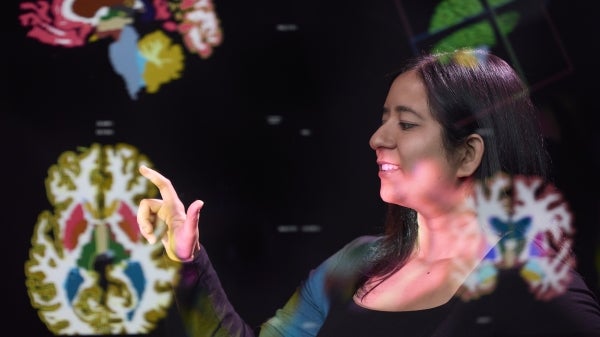Prevention science certificate will prepare students to help children and families

Over 90% of proven treatments and interventions have yet to be used by public and private health care professionals.
The rates of mental, emotional and behavioral disorders in American youth are all on the rise. But over 90% of proven treatments and interventions have yet to be used by public and private health care professionals.
The Arizona State University Department of Psychology and REACH Institute are trying to change that.
To help those who need it, the psychology department will launch an online training program that teaches students how to find, evaluate and implement interventions that have been shown to prevent or reduce the severity of mental, emotional and behavioral disorders. The first session of the ASU Certificate in Applied Prevention Science (CAPS) will begin on Aug. 22, 2019. Students who complete the five-course certification program will understand the research-based approaches that promote healthy social, emotional and interpersonal development in youth.
“The ASU Certificate in Applied Prevention Science is here to increase the number of proven strategies and programs made available to the community,” said Armando Pina, associate professor of psychology. “By training people how to find and evaluate evidence-based treatments and interventions, we will give them tools they can put into action in any community at any time.”
From reaction to prevention
In 2009, the Institute of Medicine released a report on the prevention of mental, emotional and behavioral problems in American youth. The impact of research in prevention science research since then has been blunted because most proven preventative interventions are not used in the public and private health care sectors, including schools.
Jeff Boles knows firsthand the importance of implementing preventative interventions in schools. He is the executive director of the Creighton Community Foundation that works closely with the Creighton School District to improve the lives of children who live in some of the poorest neighborhoods in metropolitan Phoenix. He said it is time for educators to turn away from taking a reactive stance to the social and emotional problems of children, especially those who have experienced trauma. Instead, the focus should be on how to best equip children to cope, and prevention is key.
Pina, who will oversee the CAPS program, recently published a study showing there are few effective treatments and interventions for ethnic minority youth. The study also reported that it takes about 17 years for a research-based intervention to make it from the lab bench into the community. Pina has called for research in prevention strategies and treatments to move outside of the lab and into the community, and the CAPS program is an expansion of prevention science beyond the research lab.
“The long-term goal of the CAPS program is to create an entire workforce that can make the best decisions to help children and families using available evidence-based programs,” he said.
The five CAPS classes will teach the students how to become educated consumers of scientific evidence so that they know how to choose a research-based intervention program that works. Class topics cover how preventative interventions are designed and evaluated and address strategies for how to deliver interventions to children and families in a community. The training program also delves into specific interventions that have been shown to work.
To enroll in the CAPS program, students must have a bachelor’s degree in psychology or a related health, mental health or counseling field. The certificate can be useful for jobs involving working with families and children in schools, courts, community health centers and mental health agencies, child welfare, home visiting services, foster care services and tribal behavioral health. The ASU CAPS program also satisfies the education component for becoming a licensed prevention specialist through the International Certification and Reciprocity Consortium.
More Science and technology

New NIH-funded program will train ASU students for the future of AI-powered medicine
The medical sector is increasingly exploring the use of artificial intelligence, or AI, to make health care more affordable and…

Cosmic clues: Metal-poor regions unveil potential method for galaxy growth
For decades, astronomers have analyzed data from space and ground telescopes to learn more about galaxies in the universe.…

Indigenous geneticists build unprecedented research community at ASU
When Krystal Tsosie (Diné) was an undergraduate at Arizona State University, there were no Indigenous faculty she could look to…